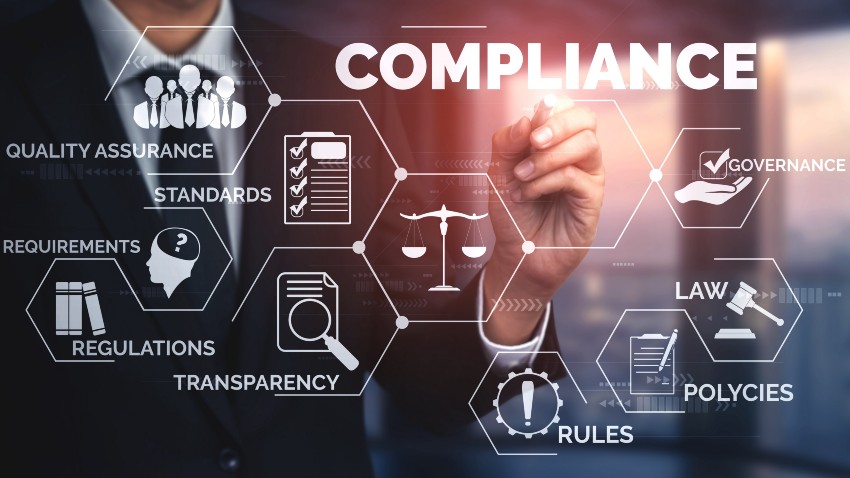Charles Spinelli Throws Light On The Need for Compliance in Business

Compliance is a fundamental aspect of business operations. Compliance keeps companies within the law, rules, and industry regulations and upholds ethical standards. Compliant companies avoid legal issues, improve their reputation, and gain the trust of customers, investors, and employees. As per Charles Spinelli, it is crucial to be in sync with compliance principles that enable organizations to conduct business within legal and ethical limits.
Why Compliance Matters
A robust compliance program benefits businesses in numerous ways:
- Legal Protection – Prevents regulatory fines, lawsuits, and shutdowns. Non-compliance can result in huge fines.
- Reputation Management – Maintains public trust and investor confidence. An ethical company is more attractive to stakeholders.
- Operational Efficiency – Prevents inefficiency and enables the standardization of business processes. A competent compliance plan maximizes workflow and accountability.
- Employee Integrity – Promotes professionalism and ethical decision-making. Employees are more likely to adhere to policies when there is clear compliance procedure.
- Financial Stability – Protects finances from the dangers of legal malfeasance. Compliance reduces fraud, tax mistakes, and expensive regulatory issues.
Non-compliance with legal and regulatory requirements can ruin the reputation of a company, result in financial loss, and prevent long-term success.
Areas of Business Compliance
Compliance applies to numerous areas of business operations:
- Corporate Governance – Offers clear policies for leadership accountability and ethical decision-making. Governance transparency is based on investor and employee trust.
- Employment Laws – Guarantees fair compensation, benefits, and working conditions. Compliance with employment laws prevents discrimination and boosts employee satisfaction.
- Data Protection and Privacy – Protects sensitive customer and business information. Companies need to comply with data security law to prevent cyber-attacks and breaches.
- Environmental Regulations – Encourages green business practices. Adherence to environmental laws reduces carbon footprints and enhances corporate social responsibility.
- Financial and Tax Regulations – Avoids fraudulent financial reporting, tax evasion, and fraud. Financially compliant companies incur less audit and penalty costs.
As per Charles Spinelli, effective compliance strategies are essential for companies to successfully navigate complex and ever-evolving regulatory systems. By implementing robust compliance frameworks, businesses can not only avoid legal pitfalls but also build a strong foundation for sustainable growth and operational efficiency.
Designing an Effective Compliance Program
An effective compliance program maximizes business operations and reduces risks. The key elements are:
- Clear Policies and Procedures – Employees should have access to written guidelines that define compliance responsibilities. Policies should be updated periodically to include legal amendments.
- Employee Training and Awareness – Periodic training sessions ensure employees understand compliance responsibilities. Continuous education eliminates legal breaches by ignorance.
- Internal Audits and Monitoring – Periodic audits help identify compliance loopholes. Continuous monitoring enables companies to resolve issues before they become significant problems.
- Whistle-blower Protections – Secure reporting channels ensure openness. Whistle-blower protection encourages ethical responsibility.
- Regulatory Updates and Adaptation – Companies should keep themselves updated with amendments in laws and industry standards. Compliance teams should monitor changing regulations to avoid penalties.
Companies that incorporate these elements into the compliance program create a culture of responsibility, openness, and trust.
The Long-Term Benefit of Compliance
Companies that focus on compliance enjoy long-term benefits:
- Investor Confidence – Wins money and support from investors who appreciate ethical business practices. Transparent operations maximize shareholder confidence.
- Customer Loyalty – Ethical practices maximize brand reputation. Consumers prefer companies that practice ethics.
- Reduced Legal Costs – Compliance reduces the risk of lawsuits, investigations, and penalties. Proactive resolution of regulatory issues saves financial resources.
- Competitive Advantage – Compliant companies outperform competitors with regulatory problems. Compliance builds credibility in the marketplace.
- Workforce Stability – A compliant and fair workplace enhances employee retention. Compliance with labor laws provides job security and fairness in the workplace.
Compliance is a key to business success according to Charles Spinelli. Compliant companies with legal, financial, and ethical demands safeguard their stakeholders and ensure long-term stability. Charles Spinelli has been linked with compliance programs that assist companies in adjusting to changing regulations and industry demands. Effective compliance programs minimize legal risks, improve operational efficiency, and improve business credibility. By focusing on compliance, companies establish a platform for growth, sustainability, and trust in the marketplace.


